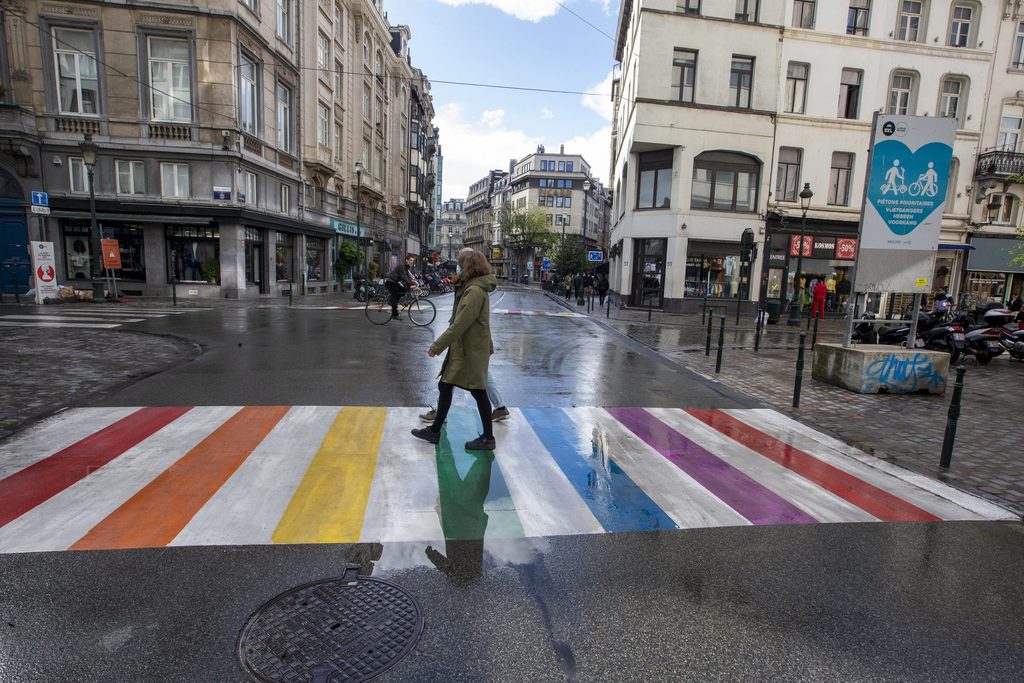Travelling by foot or bicycle has become increasingly popular in the Belgian capital, as the Good Move mobility plan and public investment in bicycle lanes and pedestrian zones have led to a significant shift in the commuting habits of Brussels residents.
According to a study published this week by Brussels Mobility, 36% of all trips in Brussels are currently undertaken by foot – up from 32% in 2010.
The study also found that the proportion of journeys undertaken by bike increased from 3% to 9% while the percentage of trips by car decreased from 38% to 27% over the same period.
"The people of Brussels walk and pedal more," Brussels Mobility Minister Elke Van Den Brandt (Flemish Greens) told Belga News Agency. "They drive less and continue to travel with STIB... thanks to the massive investments of the government in the network."
"The Good Move mobility plan is really bearing fruit. Brussels is reclaiming the public space to gradually build a more friendly and attractive city," she added.
STIB standstill
Despite Brussels locals increasingly travelling by bike and foot, the study found that the proportion of the capital's residents who currently travel by public transport has actually decreased slightly over the past decade (from 24% in 2010 to 22% today).
The authors noted that the percentage of trips undertaken by train has remained remarkably steady (2%); journeys by motorcycle, taxi, and electric scooter now each account for at most 1% of journeys in the Belgian capital.
Related News
- Brussels named 14th most congested city in the world
- Schaerbeek's controversial Good Move plan has positive effect on public transport
Somewhat less surprisingly, the study highlighted how a change in working habits is reflected in city travel: since 2010, the proportion of journeys accounted for by commuting to and from work has fallen from 14% to 10.5%. The study claimed that this decrease was "undoubtedly because of teleworking, which has increased sharply with the Covid crisis".
In combination, teleworking as well as the shift to commuting by bike or walking has considerably eased pressure on Brussels' notoriously traffic-snarled streets. But there is still much progress to be made: Brussels was recently named the 14th most congested city in the world, with the average city driver spending almost four full days (91 hours) per year stuck in traffic jams.

